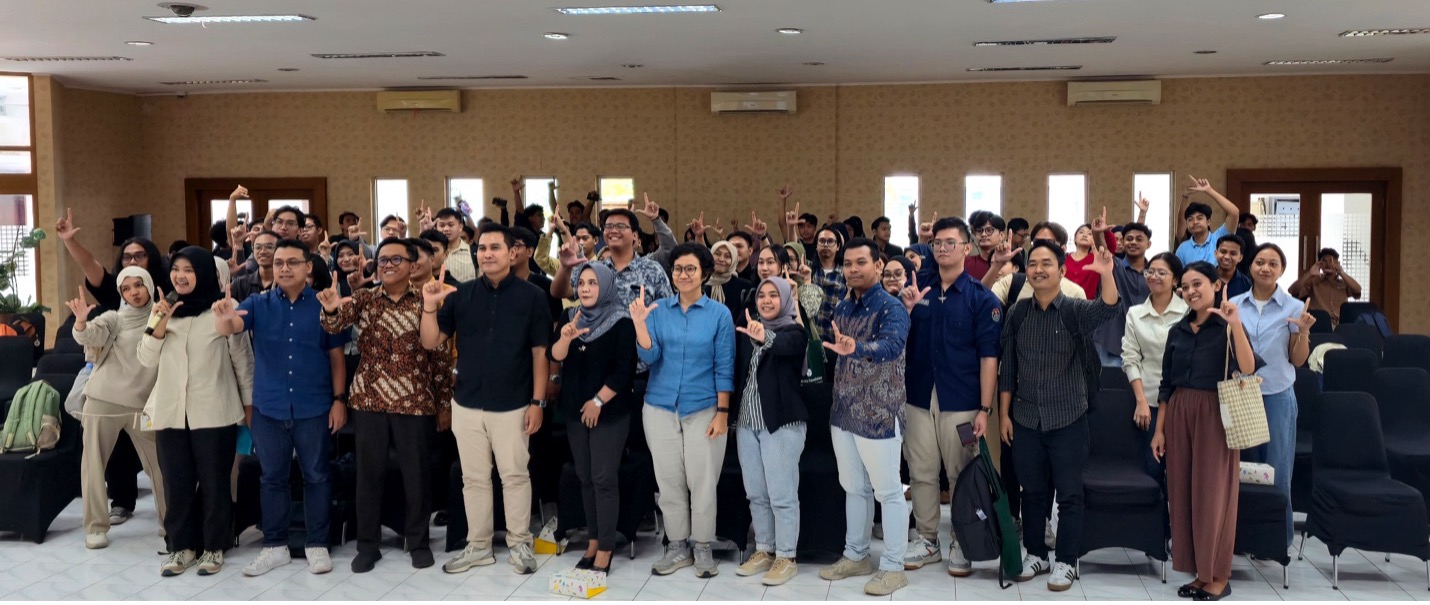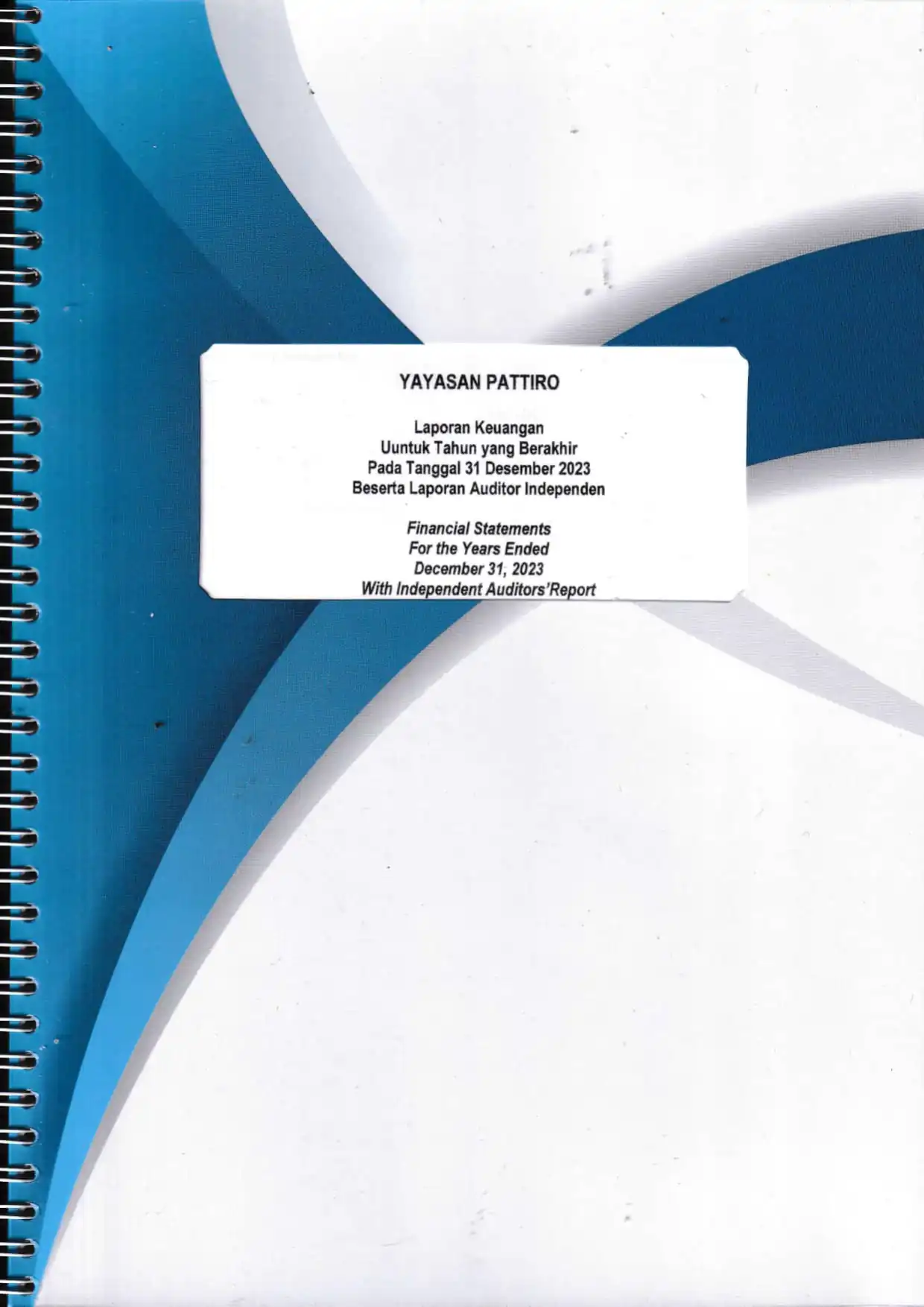Climate change is no longer a future threat but a present reality, as evidenced by floods, extreme temperatures, and economic losses estimated at 0.66–3.45% of Indonesia’s GDP by 2030. Unfortunately, contributions from the State Budget (APBN) and other sources are still insufficient. Amid the need for climate action funding, which amounts to over Rp343 trillion per year, ecological funding strategies such as Ecological Fiscal Transfer (EFT) are becoming increasingly urgent.
In an effort to engage the younger generation on this issue, The Asia Foundation and PATTIRO, along with the Civil Society Coalition for Ecological Funding (KMS-PE), held “EFT Goes to Campus” at Gadjah Mada University (UGM) on Tuesday (21/8). The event, which focused on the theme of “Youth Involvement in Strengthening Environmental Funding,” was attended by 120 undergraduate and graduate students from the Faculty of Social and Political Sciences (FISIPOL) at UGM.
Since 2017, the Civil Society Coalition for Ecological Funding (KMS-PE) has initiated the implementation of Ecological Fiscal Transfer (EFT) through various schemes, such as TAPE, TAKE, and ALAKE. To date, at least 46 local governments have adopted this approach. Various evidence shows that EFT is effective in encouraging the integration of environmental indicators into regional planning and budgeting processes, strengthening environmental protection regulations, and increasing public participation, especially among the youth.
The event featured several speakers, including Dwi Nugroho, Program Officer for the Environmental Governance Unit at The Asia Foundation; Nurul Tanjung, Program Officer at PATTIRO; Indah Surya W., an academic from the Department of Public Policy (DPP) at FISIPOL UGM; and Ani Widaya, former Head of Sumbermulyo Village and a member of the Bantul Regency Parliament. The event was successfully held and attended by 120 participants from FISIPOL UGM’s undergraduate and graduate programs, highlighting the enthusiasm of the younger generation to learn about environmental funding and their role in climate action.
Dwi Nugroho explained that EFT is a form of reward in the form of fiscal incentives from the central government to local governments that show a commitment to protecting the environment. “The hope is that more local governments will make environmental issues a priority in their policies and budgets,” Dwi explained.
Meanwhile, Ani Widaya emphasized the importance of student involvement at the village level. “Environmental issues such as sanitation and waste are still serious problems. Students can play an active role through KKN (Community Service) programs to socialize the importance of protecting the environment,” she said.
According to Indah Surya W, the climate crisis must be placed on par with the fiscal capacity-building agenda. “Without that, environmental policies are difficult to implement sustainably,” she stated.
Nurul Tanjung added, “The younger generation is the group most affected by the climate crisis, from health to the economy. With their energy, creativity, and long-term vision, their voices are greatly needed in the public policy process. Environmental budgeting is not an elite issue but a shared interest.”
PATTIRO has been actively involving young people in EFT advocacy through training, youth camps, and the development of a gender-responsive online EFT platform. Nurul also encouraged young people to contribute through social media, communities, local projects, and policy research and advocacy. In addition, PATTIRO has also developed a gender-responsive online e-learning EFT platform e-learning EFT (https://elearning-eft.pattiro.org/) related to EFT that is accessible to the public for free.
The discussion was dynamic, as students showed great interest in the budget and fiscal incentive/EFT schemes, which are still relatively new to them. Critical questions arose, such as whether EFT could be applied in NTT, how KMS-PE advocates for it to be accepted by local governments, and whether EFT has the potential for misuse since it involves local governments as the main actors.
In response, Nurul explained that EFT is just one of many environmental funding schemes. Since it is based on the local government budget (APBD), EFT can be applied in NTT and other regions in Indonesia. Advocacy to local governments is key to legalizing its implementation, emphasizing that EFT can protect the environment, encourage economic growth, and strengthen disaster prevention efforts.
The risk of corruption is very small because its implementation involves many parties, both the local government and the community, with fiscal incentive mechanisms calculated using transparent indicators as a form of accountability.
This discussion proves that the younger generation is already more concerned about the environment through action and advocacy. Through “EFT Goes to Campus,” young people are expected to not only be recipients of education but also agents of change who strengthen environmental funding for the sustainability of the planet and national development. In the future, this program will be expanded to various other campuses in Indonesia.





